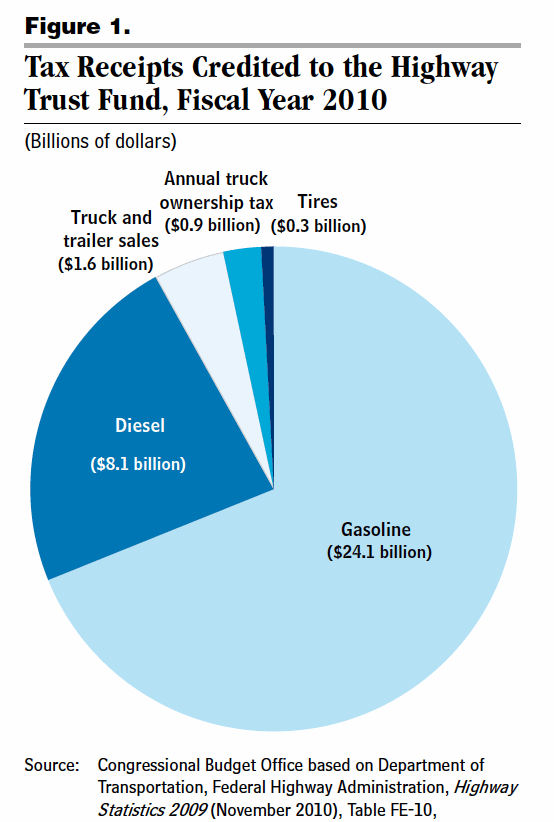CONGRESSIONAL BUDGET OFFICE
Summary
About 25 percent of the nation’s highways, which carry about 85 percent of all road traffic, are paid for in part by the federal government; the remaining funding for highways comes from state and local governments. Federal spending on highways is funded primarily by taxes on gasoline and diesel fuel, but those and other taxes paid by highway users do not yield enough revenue to support either current federal spending on highways or the higher levels of spending that have been proposed by some observers. Although raising those taxes would bring in a larger amount of revenue, a more fundamental issue would remain: By themselves, fuel taxes cannot provide a strong incentive for people to avoid overusing highways-that is, to forgo trips for which the costs to themselves and others exceed the benefits. This study examines broad alternatives for federal funding of highways, focusing on fuel taxes and on taxes that could be assessed on the basis of the number of miles that vehicles travel.
Approaches to funding highways can be evaluated in terms of equity and economic efficiency. Equity, or fairness, is subjective and can be assessed in several ways. Observers of highway funding often gauge fairness by considering the share of funding that is obtained from taxes paid by highway users rather than from general taxpayer funds, from people in households that fall into various income categories, or from people in rural versus urban households.
The economic efficiency of a funding approach depends partly on its effects on users’ travel behavior and partly on what it costs to implement. Charging users for the costs their travel imposes on society would create incentives for people to limit highway use to trips for which the benefits exceed the costs, thus reducing or eliminating overuse of highways and helping identify the economic value of investments in highways. However, the costs of collecting and enforcing such user charges also must be considered in evaluating their net effect on efficiency.
Download full report (PDF): Alternative Approaches to Funding Highways
Download summary
About the Congressional Budget Office
www.cbo.gov
“CBO’s mandate is to provide the Congress with:
- Objective, nonpartisan, and timely analyses to aid in economic and budgetary decisions on the wide array of programs covered by the federal budget and
- The information and estimates required for the Congressional budget process.”
Tags: CBO, Congressional Budget Office







 RSS Feed
RSS Feed